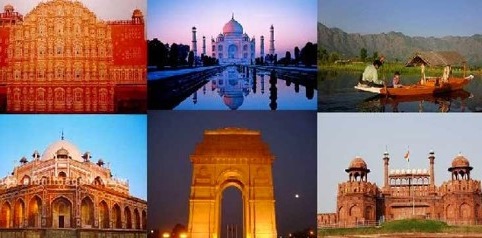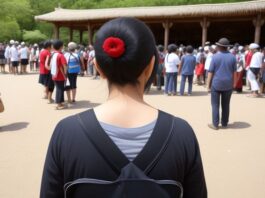Education Travel Culture , travel, and culture are the cornerstones of human understanding and global connectivity. Combining these elements in the form of education and travel culture creates a powerful force for learning, empathy, and appreciation. In this immersive exploration, we embark on a transformative journey to understand how education and travel intersect with culture, shaping our world and enriching our lives.
Table of Contents
The Triad of Enlightenment
Education, travel, and culture represent a trinity of enlightenment. Education opens our minds, travel broadens our horizons, and culture connects us with the collective experiences of humanity.
Learning Beyond Borders
Through education and travel, we are able to break down barriers and expand our knowledge beyond the confines of our own borders. Immersing ourselves in different cultures allows us to truly understand and appreciate the diversity of the human experience. It allows us to challenge our assumptions, develop empathy, and foster a greater sense of global citizenship. By embracing the Triad of Enlightenment, we can become lifelong learners, continuously seeking new perspectives and embracing the beauty of our interconnected world.
The Benefits of Study Abroad Programs
Study abroad programs offer students a unique opportunity to immerse themselves in foreign cultures while pursuing their education. These programs foster global perspectives, language skills, and personal growth.
Benefits:
- Cultural Immersion: Living in a foreign country allows students to experience daily life and traditions firsthand.
- Language Proficiency: Immersion accelerates language learning, enhancing communication skills.
- Independence: Studying abroad fosters independence, adaptability, and problem-solving abilities.
Universities as Cultural Hubs
Universities are not just centers of academic learning; they are microcosms of global culture. Diverse student populations, cultural clubs, and international events make universities dynamic hubs for cultural exchange.
Cultural Opportunities:
- Cultural Festivals: Universities host festivals celebrating various cultures, showcasing food, music, and art.
- Language Exchange: Language partners and clubs facilitate cross-cultural communication.
Exploring cultural heritage
Universities often offer courses and programs that delve into the history and traditions of different cultures, allowing students to explore and appreciate their Educational Trip Ancestry. This can include studying ancient civilizations, learning traditional arts and crafts, or even visiting historical sites and museums. By engaging in these activities, students gain a deeper understanding and respect for the diverse cultures that exist around the world.
Museums as Time Capsules
Museums serve as guardians of cultural heritage, preserving art, artifacts, and historical narratives. These institutions offer a glimpse into the past and the diversity of human expression.
Museums of Note:
- The Louvre, Paris: Home to the Mona Lisa and countless other masterpieces
- The British Museum, London, houses a vast collection of artifacts from around the world.
UNESCO World Heritage Sites
UNESCO designates World Heritage Sites to protect cultural and natural treasures. Visiting these sites provides insight into humanity’s shared legacy.
Notable Sites:
- Machu Picchu, Peru: An Inca citadel nestled in the Andes Mountains.
- Angkor Wat, Cambodia: A sprawling temple complex representing Khmer architecture.
Language as a Cultural Bridge
Language serves as a Education Travel Culture, connecting people and allowing for the exchange of ideas and knowledge. Through language, individuals are able to communicate and understand different cultures, histories, and perspectives. It helps to foster empathy, understanding, and appreciation for diverse cultures, ultimately promoting global unity and harmony. Language is not only a means of communication but also a powerful tool that bridges the gaps between cultures and allows for the sharing of experiences and wisdom.
Learning Through Language
Language is a gateway to culture. Learning a new language allows travelers to engage more deeply with local communities and understand the nuances of their culture.
Language Learning Methods:
- Language Classes: Formal lessons at language schools or online platforms.
- Language Immersion Programs: Living in a foreign country and using the language daily.
Bilingualism and Multilingualism
Bilingual and multilingual individuals possess a unique ability to navigate diverse cultures. They bridge communication gaps and foster cross-cultural understanding.
Benefits:
- Cultural Sensitivity: Multilingual individuals are often more attuned to cultural nuances.
- Global Career Opportunities: Many industries value employees with language skills.
Cuisine: A Taste of Culture
Cuisine is another exciting benefit of bilingualism and multilingualism. Being able to understand and communicate in different languages allows individuals to fully immerse themselves in the culinary experiences of different cultures. They can appreciate the flavors, techniques, and history behind various dishes, making their dining experiences even more enriching and enjoyable. From savoring traditional Italian pasta to indulging in authentic Japanese sushi, bilingual and multilingual individuals can truly have a taste of different cultures through their language skills.
Culinary Exploration
Food is a universal language, and sampling local cuisine is a delicious way to explore culture. Culinary experiences enrich travel by engaging the senses.
Culinary Adventures:
- Street Food: Exploring local street food stalls and markets.
- Cooking Classes: Participating in cooking classes to learn traditional recipes.
Food as Cultural Identity
Food embodies cultural identity and heritage. Traditional dishes, recipes passed down through generations, and regional specialties tell stories of a community’s history and traditions.
Examples:
- Sushi in Japan: A culinary art form reflecting precision and craftsmanship.
- Tacos in Mexico: A symbol of Mexican street food culture.
Preserving and Celebrating Indigenous Cultures
Preserving and celebrating indigenous cultures through food is crucial to maintaining the diversity of our global culinary heritage. Indigenous recipes and cooking techniques are not only delicious but also serve as a way to honor and respect the customs and traditions of these communities. By supporting and promoting indigenous cuisines, we can help ensure the survival and continuation of their unique cultural identities for future generations to appreciate and enjoy.
Indigenous Cultural Experiences
Exploring indigenous cultures provides insight into heritage preservation, traditions, and the challenges faced by indigenous communities.
Cultural Encounters:
- Meet Indigenous Leaders: Engaging with community leaders and learning about their cultural preservation efforts.
- Participate in Rituals: When invited, participating in ceremonies and rituals with respect.
Responsible Travel and Ethical Tourism
Travelers play a role in preserving indigenous cultures by supporting responsible and ethical tourism practices. This involves respecting traditions, supporting local economies, and advocating for cultural preservation.
Principles of Ethical Tourism:
- Cultural Respect: Understanding and respecting cultural norms and practices.
- Economic Empowerment: Supporting local artisans and businesses.
Global Citizenship Through Education Travel Culture
Academic Travel Ethos and understanding through educational travel experiences By actively engaging with different cultures, travelers can broaden their perspectives and foster global citizenship. This includes learning about local customs, traditions, and history and sharing this knowledge with others to promote cultural appreciation and respect. Ultimately, ethical tourism encourages a mutual exchange of knowledge and values, benefiting both the traveler and the local community.
Fostering Global Citizenship
Education travel culture promotes global citizenship, encouraging individuals to be responsible and engaged members of the global community.
Traits of a Global Citizen:
- Cultural Openness: A willingness to learn from and embrace diverse cultures.
- Social Responsibility: Advocating for global issues and contributing to positive change.
Empathy and Tolerance
Education travel culture cultivates empathy and tolerance by exposing individuals to different worldviews and perspectives.
Benefits:
- Reducing Stereotypes: Personal experiences challenge stereotypes and biases.
- Conflict Resolution: Greater understanding fosters peaceful dialogue and resolution.
Certainly! Here is a table summarizing the key sections and topics from the article “Education Travel Culture: A Journey of Discovery”:
| Section | Topics Covered |
| The Triad of Enlightenment: Education, Travel, and Culture | |
| Learning Beyond Borders | – Benefits of Study Abroad Programs |
| – Universities as Cultural Hubs | |
| Exploring Cultural Heritage | – Museums as Time Capsules |
| – UNESCO World Heritage Sites | |
| Language as a Cultural Bridge | – Learning Through Language |
| – Bilingualism and Multilingualism | |
| Cuisine: A Taste of Culture | – Culinary Exploration |
| – Food as Cultural Identity | |
| Preserving and Celebrating Indigenous Cultures | – Indigenous Cultural Experiences |
| – Responsible Travel and Ethical Tourism | |
| Global Citizenship Through Education Travel Culture | – Fostering Global Citizenship |
| – Empathy and Tolerance |
(FAQs) and their corresponding answers based on the article “Education Travel Culture: A Journey of Discovery”:
FAQ 1:
Q: What is the concept of “Learning Exploration Heritage”?
A: Learning Exploration Heritage is the combination of education, travel, and culture, emphasizing how these elements come together to foster learning, empathy, and a deeper understanding of the world.
FAQ 2:
Q: What are the benefits of participating in study abroad programs?
A: Study abroad programs offer benefits such as cultural immersion, language proficiency, and personal growth, making them valuable for students seeking global experiences.
FAQ 3:
Q: How do universities contribute to cultural exchange?
A: Universities serve as hubs for cultural exchange through diverse student populations, cultural clubs, and events that celebrate global cultures.
FAQ 4:
Q: What is the role of museums in preserving culture?
A: Museums preserve culture by safeguarding art, artifacts, and historical narratives, allowing us to connect with the past and the diversity of human expression.
FAQ 5:
Q: What are UNESCO World Heritage Sites, and why are they important?
A: UNESCO World Heritage Sites are designated to protect cultural and natural treasures. They provide insights into our shared global heritage and are essential for preservation.
FAQ 6:
Q: How does learning a new language enhance cultural exploration during travel?
A: Learning a new language facilitates deeper engagement with local communities and a better understanding of cultural nuances.
FAQ 7:
Q: What advantages do bilingual and multilingual individuals have in cultural interactions?
A: Bilingual and multilingual individuals bridge communication gaps and promote cross-cultural understanding, thanks to their language skills.
FAQ 8:
Q: How does cuisine contribute to cultural exploration during travel?
A: Sampling local cuisine allows travelers to experience a culture’s flavors, traditions, and history through food.
FAQ 9:
Q: What is the significance of traditional dishes and regional specialties in cultural identity?
A: Traditional dishes and regional specialties represent cultural identity and heritage, telling stories of a community’s history and traditions.
FAQ 10:
Q: How can travelers explore and preserve indigenous cultures respectfully?
A: Travelers can engage with indigenous cultures through cultural experiences and support ethical tourism practices, respecting traditions and advocating for preservation.
FAQ 11:
Q: How does education travel culture promote global citizenship?
A: Education travel culture encourages global citizenship by fostering cultural openness, social responsibility, and engagement with global issues.
FAQ 12:
Q: What role does Scholarly Expedition Civilization play in cultivating empathy and tolerance?
A: Scholarly Expedition Civilization exposes individuals to diverse worldviews, challenging stereotypes, reducing biases, and promoting peaceful dialogue and resolution.
FAQ 13:
Q: Are there specific traits associated with global citizens?
A: Global citizens often exhibit traits such as cultural openness, empathy, tolerance, and a sense of social responsibility.
FAQ 14:
Q: How can individuals prepare for educational travel experiences?
A: Individuals can prepare by researching their destination, learning about local customs, and understanding the cultural context to make the most of their journey.
FAQ 15:
Q: What is the ultimate goal of education travel culture?
A: The ultimate goal is to foster a deeper understanding of the world, promote empathy and tolerance, and create responsible global citizens who actively contribute to a more interconnected world.
Conclusion
In the realm of Intellectual Voyage Tradition, the journey is not just a physical voyage but a profound exploration of the human experience. This trifecta of education, travel, and culture has the power to transcend borders, create global citizens, and enrich lives in ways that traditional education alone cannot achieve.
Education Travel Culture Unveils a World of Possibilities: By embarking on study abroad programs or immersing oneself in international university communities, individuals gain more than academic knowledge. They acquire cultural sensitivity, language skills, and a broader perspective on life.
Preservation of Heritage and Understanding: Museums and UNESCO World Heritage Sites serve as time capsules, preserving the rich tapestry of our past and allowing us to connect with our shared global history. Learning through language and exploring culinary traditions foster deep connections with local cultures.
A Taste of Identity: Cuisine, with its diverse flavors and regional specialties, is a gateway to understanding cultural identity and heritage. Savoring traditional dishes is not just a culinary experience but a journey into the soul of a community.
Respecting and Celebrating Indigenous Cultures: Engaging with indigenous cultures offers a unique opportunity to appreciate their heritage and challenges. Responsible and ethical tourism practices are crucial in preserving these invaluable traditions.
Global Citizenship and Empathy: Academic Excursion Society transforms individuals into global citizens, fostering cultural openness, empathy, and social responsibility. It challenges stereotypes, reduces biases, and promotes peaceful dialogue.
In conclusion, Cultural Exploration Enlightenment is an enriching journey of discovery. It cultivates a deeper understanding of the world, encourages empathy, tolerance, and a sense of social responsibility, and ultimately contributes to a more interconnected and harmonious global community. As we embark on this journey, let us remember that the pursuit of knowledge, cultural exploration, and the bonds we forge along the way are the true treasures of life.
more information :
Traveling The World Knowing Different Cultures And Food
Benefits Of Travelling Culture




